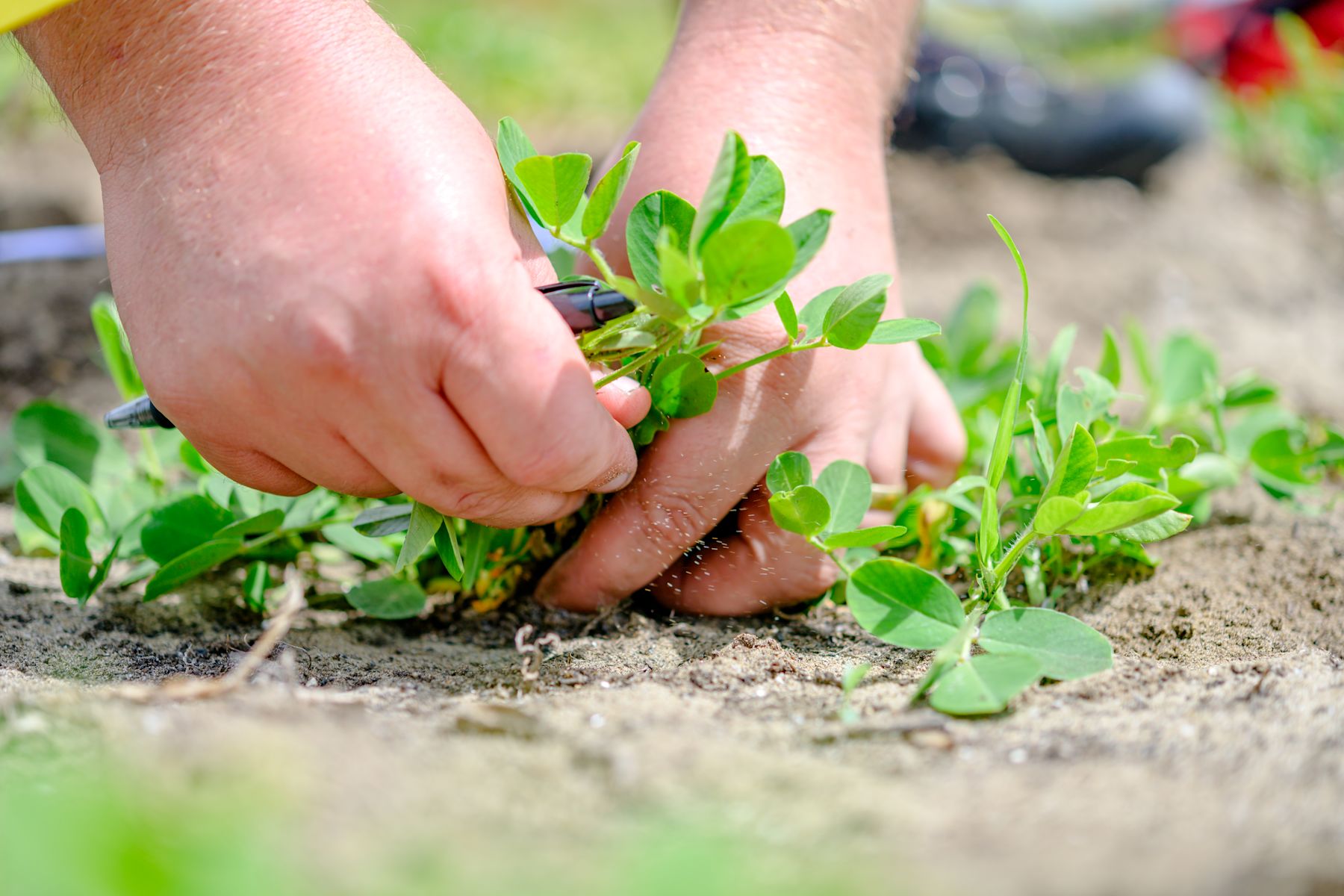New Zealand
12 Jun 2024
New Zealand’s most iconic spread has promise to be made from home-grown ingredients and with extra nutrition.

Pic's Peanut Butter is a classic New Zealand spread, yet currently Picot Productions Limited import all their peanuts - around 2500 tonnes - from abroad. However, Plant & Food Research experts are involved in a three-year project in Northland to explore the potential for peanuts to be commercially grown right here in New Zealand. Peanut farming has never been done on a commercial scale in New Zealand previously, and it is hoping that success from this project could lead to a new industry and boost the local Northland economy.
Peanuts are not in fact a nut. They are a type of legume, like lentils and kidney beans/butter beans. They are grown on a small bush, which can grow up to 50cm high and the peanuts develop at the very end of live shoots called “pegs”. Peanut plants are also a great rotational crop for farmers as they add nitrogen and restore the soil. The peanuts grown in Northland are short season, hi oleic acid varieties from India. This means the breed are high in oleic acid which is a “good” monosaturated fatty acid.
Nutritional composition of crops is affected by many different factors such as soil properties, climate, environment, and management practices, as well as postharvest handling and storage. To investigate the nutritional composition of the peanuts from the first two seasons of the growing trial, a project, funded by the High-Value Nutrition National Science Challenge, was carried out led by Dr Carolyn Lister of Plant & Food Research. She looked at establishing the nutritional profiles for the locally grown peanuts and determining the nutrient content and thus the health claims possible.
To do this the team analysed four samples of raw peanuts from the 2021 and 2022 trials and compared them to four samples of overseas peanuts analysed in 2021. They examined a range of nutrients such as vitamins, minerals, fat, fatty acids, protein, sugars, starch, and dietary fibres.
“In order to say a food is a source of any nutrient, you have got to reach set thresholds - usually 10% of the recommended dietary intake in a serve. Peanuts are often undervalued because they are a cheap food, but they give a huge nutritional delivery in a small amount – only 30 g is a standard serve and in that you can get the recommended dietary intake of a range of different vitamins and minerals.”
The results show that not only does growing peanuts in New Zealand soil not confer any nutritional disadvantage, but in fact, in many nutrient areas they seem to be superior to those imported from abroad. They are slightly lower in fat, higher in protein and dietary fibre, and high in niacin (vitamin B3), thiamine (vitamin B) and other vitamins. There will be a need to repeat this analysis on the next crop, and again once crops get to full commercial production. The analysis is also to be repeated with roasted and processed peanuts as this production can affect the nutritional composition.
The results so far however, shows that this project has huge promising potential for an iconic New Zealand product to be made with locally produced ingredients and be even better!